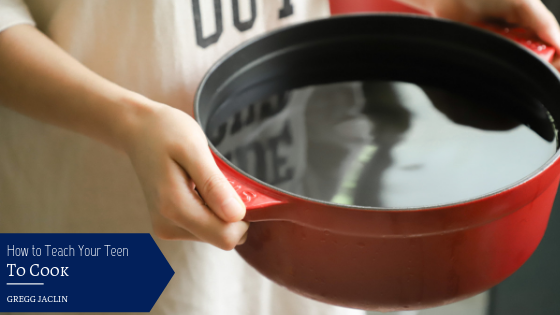As parents, part of the responsibility of raising children is ensuring they are capable of surviving on their own. While there are many resources available to help children learn how to care for themselves, parents should strive to integrate certain lessons into their lives so they can help their children grow and spend more quality time with them. When teaching teenagers how to cook, it is important to acknowledge their abilities and limitations without stepping on their toes or being too lenient. Cooperation and teamwork in the kitchen are key.
Grocery Store Navigation
When children are young, they might accompany you to the grocery store and get a general feel for how shopping for food works. However, once they are older, you should endeavor to teach them how to plan meals, save money, and choose quality items. Reading labels is an invaluable skill that can help your teen understand what makes an item healthier than an alternative. When it comes to picking fresh produce, learning how to compare items for ripeness will be essential to limit unnecessary waste.
Much of grocery shopping can be boiled down to common sense, but being clear and specific on joint trips to the store will help prepare your child for their own independent grocery shopping experiences. Grocery shopping may not be the most exciting element of cooking, but it is among the most important.
Recipe Reading
No one starts their cooking journey by making meals from their own imagination. Written recipes are a great way to introduce your child to cooking. Learning how to read the instructions, measurements, and cooking methods will prepare your teen for more difficult and even original dishes. When working from a recipe, it is also important to completely read through the recipe prior to getting started; this step is to ensure all ingredients are available.
Starting with simple recipes can better prepare your teen for independence. Though knowing how to cook an egg, boil pasta, or chop vegetables won’t necessarily make them an expert in the kitchen, these basic skills will help ensure they can make simple meals on their own.
Handling Raw Meat
This step can be omitted if you and your family have certain dietary restrictions, but it is an essential concept to understand in most families and for any individual looking to become a professional chef. Recognizing the dangers of cross-contamination and reducing the risk of foodborne bacterial diseases like E. coli and salmonella is essential for safety in the kitchen.
Food safety practices are among the most important things you should teach your children, so make sure you address additional aspects such as expiration dates, food temperatures, and more.

